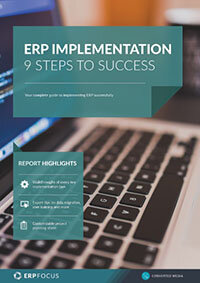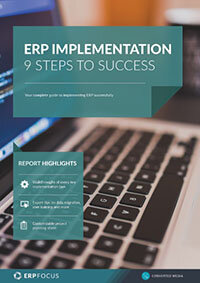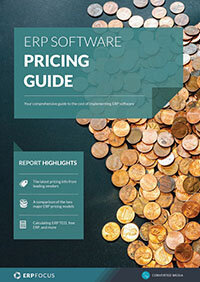ERP Budget Tips to Success
An oft-repeated rule of thumb is that an ERP implementation will cost you twice as much as you planned for by the time you are finished. Without a doubt, it is easy to overspend an ERP budget. However, barring a significant increase in scope, and assuming a reasonable budget, arrived at through collaboration with your IT department, software vendor, and working with ERP implementation consultants, there is no reason you cannot stay close to budget and use your funding for a very successful implementation.
Tips to ERP Budget Success
The first tip to ERP budget success is to warn you that you will become wildly popular overnight. Remember that this is because you are managing an enormous budget, and not because those Dale Carnegie classes are finally paying off. After a while, you will learn to just skip the unexpected invitation to lunch, and ask what the request is. It is a necessary skill to learn to say “no” to a request for money without saying “no” to your working relationship.
The second success tip is to have a well-defined ERP training plan for your implementation, development, and basis teams. Without a written plan that targets specific objectives, you will end up over spending on education, as there is almost always a compelling argument for each individual class.
The next ERP budget success tip is to think of your budget as a flow of money over time – from kick off to two months after go live, and your job is to set up a monthly flow that spends seventy-five percent of your budget after all other known expenses are accounted for. Your ERP implementation plan is going to consist of hundreds of tasks which can be categorized into “needs” and “wants”. If the seventy-five per cent money covers all of your needs and wants, you are golden – there will be few difficult choices. If the seventy-five per cent number covers all of your needs, but not all of your wants, then you have to discard enough from your want list to arrive at a spending flow that keeps your ERP costs in budget. If the seventy-five per cent does not cover your needs, then you either need to reduce scope, or decide where to intelligently increase your risk. Monthly spending is overwhelmingly a function of people, and the easiest way to make adjustments is to reduce ERP consultants and add highly talented people from within your organization. Generally speaking, you will be able to pay two or three internal people for every consultant you can do without.
Lastly, use that remaining twenty five percent surplus ERP budget in the last six weeks before go-live and first six weeks after. There will be unexpected problems, and that is when you need the flexibility to spend money aggressively, and wisely, in order to quell rumors, and find speedy resolutions to emotional problems. Once people recognize that problems are being corrected quickly confidence soars, and the probability of success takes a stair step up.
Free white paper

ERP Implementation: 9 steps to success
The 9 proven steps you should follow when implementing ERP

Featured white papers
-

ERP Software Pricing Guide
Get the latest pricing information on over 80 popular ERP systems, and learn how to budget for your ERP project in our free guide
Download
Related articles
-

Budgeting for an ERP consultant
How much can you expect to pay out for an ERP consultant?
-

How the right ERP can help you launch a successful omnichannel business
Petersen Zhu, CEO of DigitBridge and Vibes Base, shares how to create a scalable omnichannel stra...
-

How much does ERP cost? (Free ERP cost and budget guide)
How much does an ERP system cost in 2025? Everything you need to make an ERP software budget

